Yogyakarta is the second
most important tourist destination in Indonesia, after Bali. The exotic atmosphere
of the area, complete with the presence of Royal Family (of Mataram Yogyakarta
Kingdom), temples (including Borobudur temple, which is the largest Buddhist
temple in the world), and ancient royal palaces had made this
area looked very beautiful. Adding to that, Yogyakarta is filled with luxurious
five-star hotels (including one very expensive hotel near Borobudur temple),
therefore making this place comparable with Bali in a sense that it is a very
cosmopolitan, and very International tourist destination, despite the lack
of a large airport (which prevent the large jumbojets from entering Yogyakarta).
Yogyarta is also widely known as the centre of education in Indonesia (hence
the presence of overseas students).
But its uniqueness doesn't
ended at there. Especially if you're a railfans. Because, if you're a fanatical
railfans for example, when you visited Bali, you had to forget the trains
for a while. Because there are no trains or railway network at there. Whereas
in Yogyakarta, you could enjoy the equally exotic atmosphere and indulging
your railfanning hobby at the same time. So Yogyakarta is the Bali for Railfans
actually. In addition, Yogyakarta has a rich railway historical background.
Also there is a huge railway workshop as well.
So what are you waiting
for? This place is definitely the best place to visit for railfans who is
seeking a place where they can relax and playing.
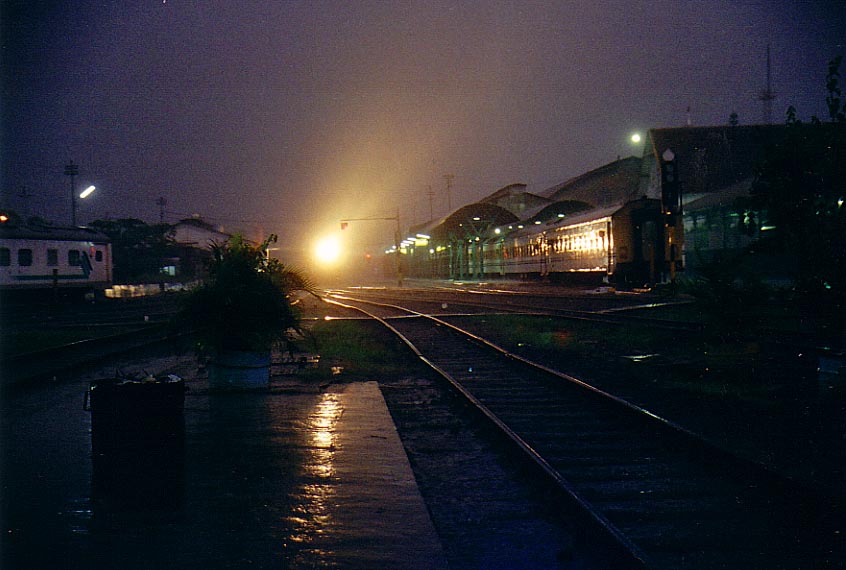 |
Nightime view of Yogyakarta Central
Station (also known as Tugu Station) during one rainy night.
The train on the right is the Senja
express train, whereas its loco can be seen in the middle, while its running
around the yards with its lights turned.
|
|
|
Minutes later, the locomotive (CC20144)
is attached to the Senja train.
This loco is actually dodged by one
annoying problem: its horn failed to work properly. Adding to that, the
loco is positioned with its engine in front. And it rains heavily! What
a hellish working situation for its driver!
|
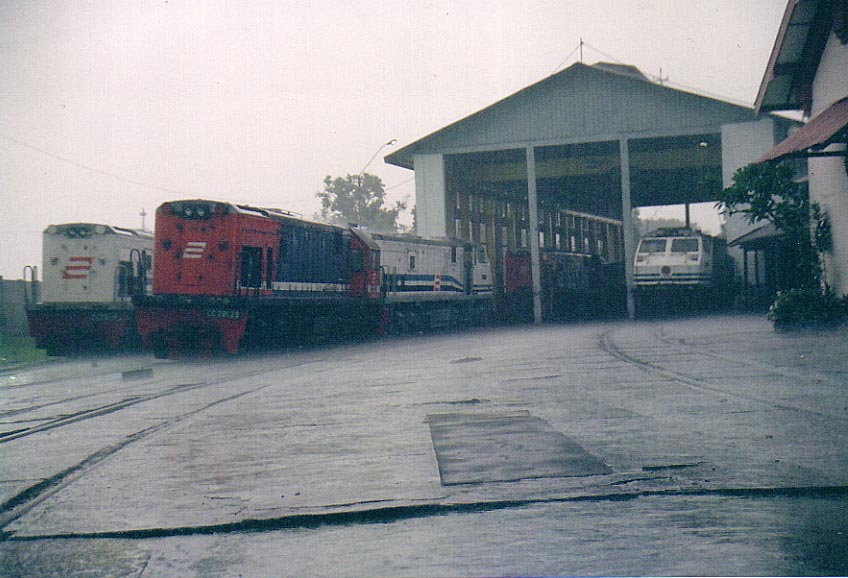 |
A gloomy view of Yogyakarta locomotive
depo, during one rainy afternoon.
Yogyakarta is a major transit point
for all trains that travelled on Javanese southern mainline. Some even
departed or terminated at Yogya. Therefore many locomotives are stabled
in here.
|
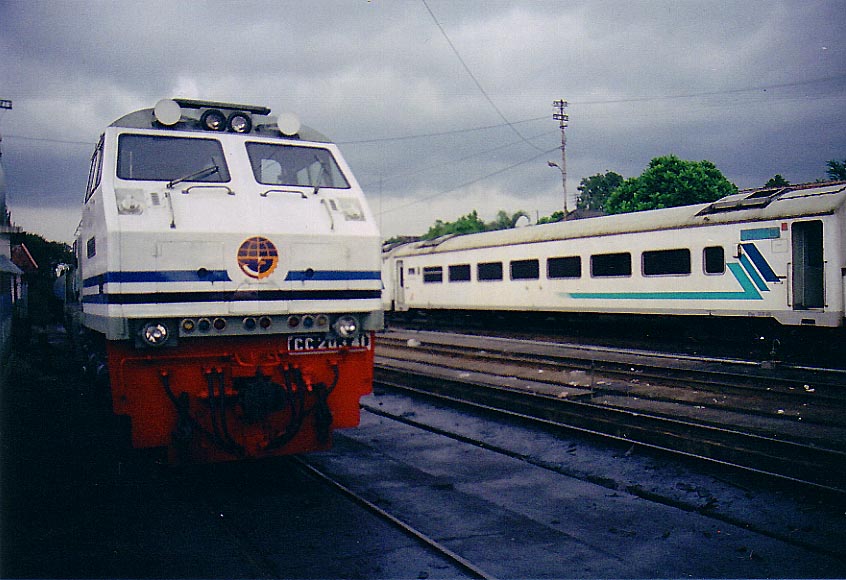 |
Hey! What a surprise!
After being absent for nearly one month in Bandung, CC20341 was eventually
discovered in Yogyakarta. Note the Taksaka train in the background.
The train doesn't travel through Bandung (CC20341 home base) during normal
service.
For history buffs, this yard was once the starting point for railway
line to Magelang, where the line rejoined with the North coast mainline
in Semarang. Unfortunately, due to its close vicinity with major highway
and the presence of rack railway line in Ambarawa, the line was closed
in 1970s.
|
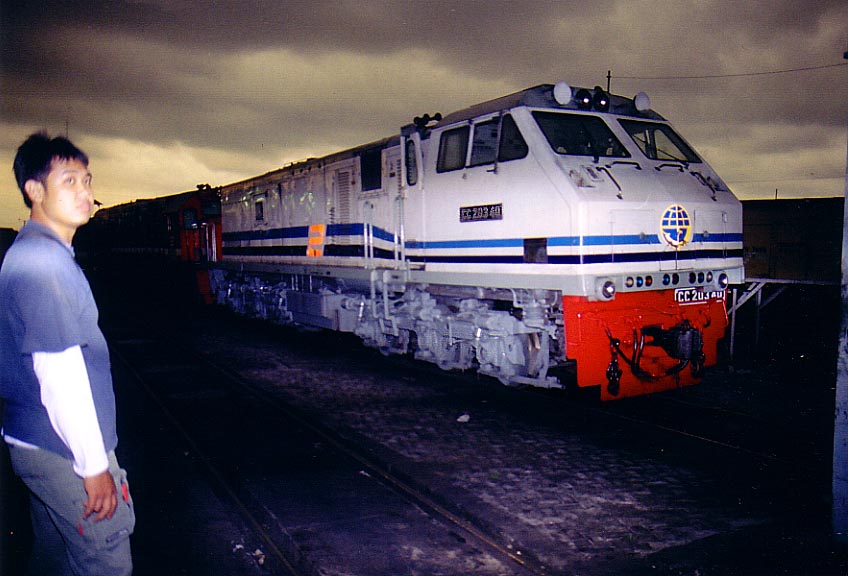 |
Peekabo!! Just metres away from CC20341,
its spoiled sister, CC20340, was found idle at Yogyakarta depo.
It was seen against the backdrop of cloudy afternoon sky.
The person on the left is Mr.Sony P
Gumilang,, my local railfans friend who showed me a lot about this place.
|
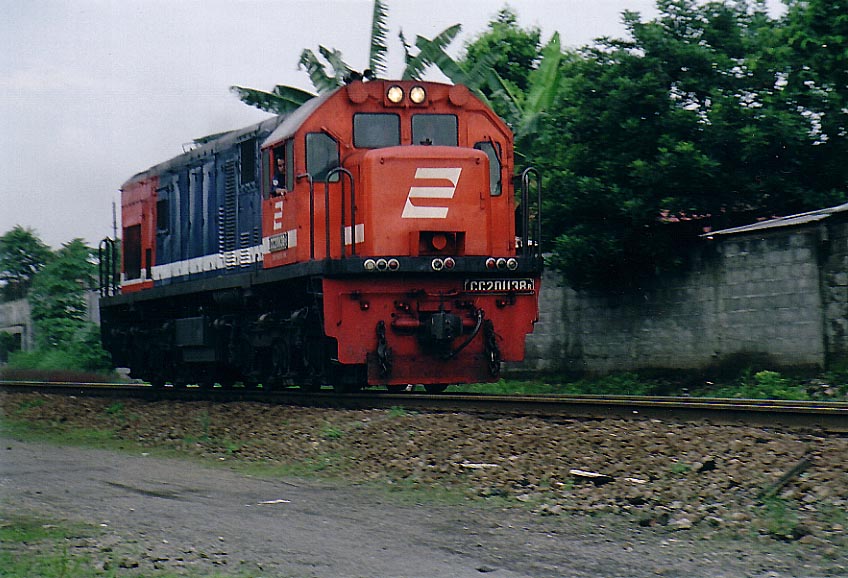 |
Just seconds after taking off from
Lempuyangan station, the former South Sumatran CC201138R find no difficulty
to reach its top speed, since it cary no load at all. It was seen heading
Eastbound.
CC201138 was previously a BB203, and
it is a rather unique locomotive. Because the loco is equipped with multiple
unit, yet it also has large radiator window on its back. Normally, the
CC201s who have large radiator windows are not equipped with multiple
unit system.
|
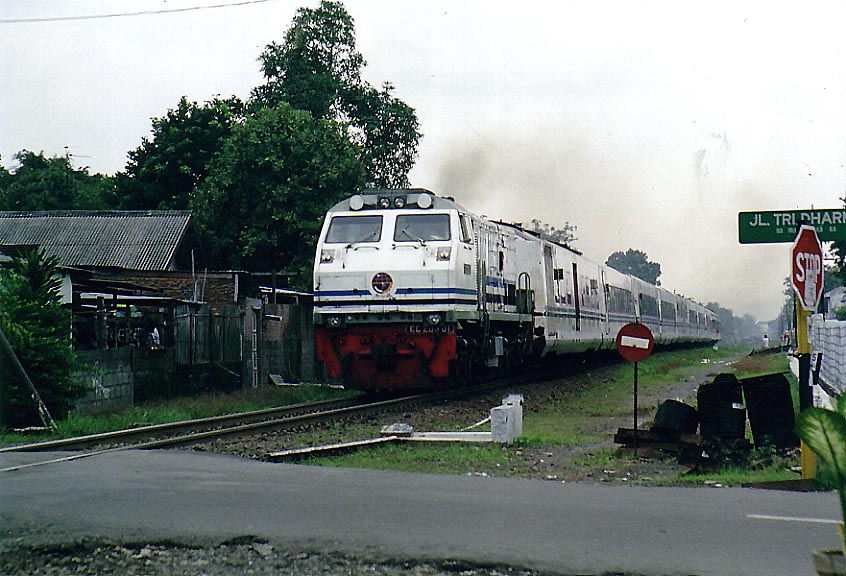 |
The Westbound Argo Lawu daylight express
train is seen approaching Yogyakarta, while being pulled by CC203 class
leader, CC20301. This train is bound for Jakarta.
This view is reminiscent of Argo Bromo
Anggrek, its North coast twin sister. Unless if you notice the road sign
on the right (which featured Javanese inscription), you wouldn't realize
that this photo was taken in Yogyakarta.
|
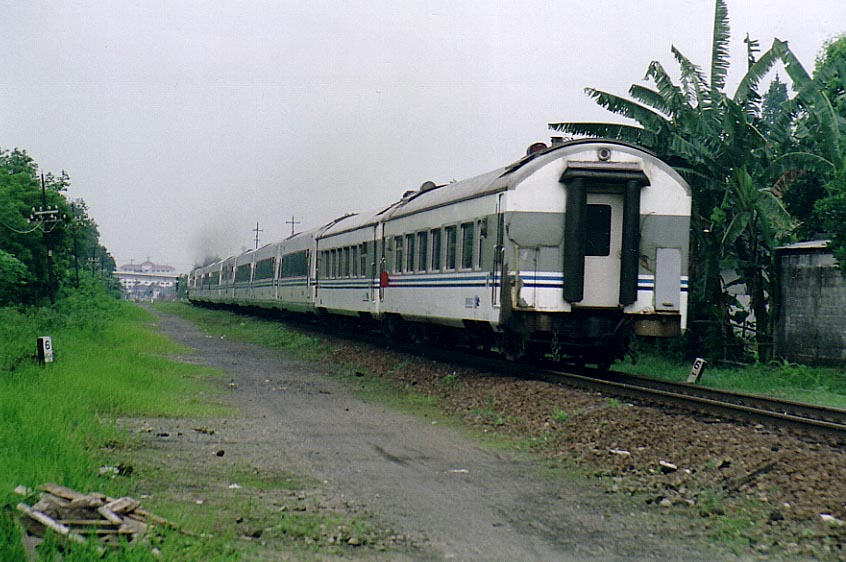 |
The tail view of Argo Lawu. Although
Argo Lawu uses Anggrek-class passenger cars, it still retain two of its
original passenger cars on its back.
Note the Hotel Garuda building in the background. The land on the left
was cleared to give way to the new double track railway line.
|